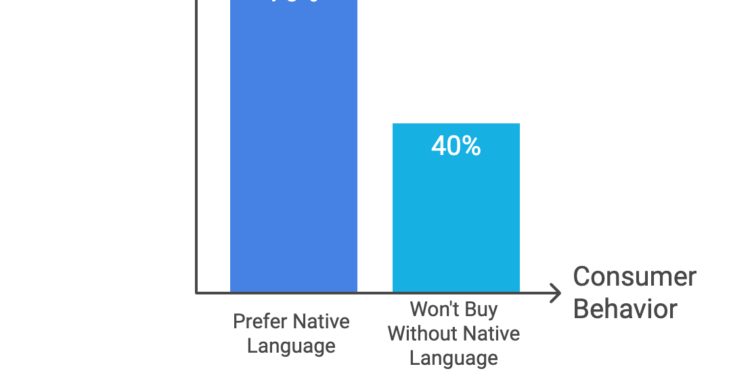Africa is a continent of immense diversity. It is home to over 1.4 billion people, speaking more than 2,000 languages, and spanning 54 countries with unique cultural nuances, economic conditions, and consumer behaviours. Adopting a one-size-fits-all approach to content creation for businesses aiming to connect with African consumers is ineffective—it can alienate audiences and harm brand credibility. Instead, localized content tailored to specific African markets’ distinct needs and preferences is the key to building trust and driving engagement.
Why Localization Matters in Africa
Localization is more than translation; it’s about adapting content to resonate with a specific audience’s cultural, linguistic, and contextual realities.
In Africa, this approach is critical due to:
- Linguistic Diversity: While English, French, and Portuguese are official languages in many African countries, indigenous languages such as Swahili, Hausa, Yoruba, and Zulu dominate daily communication. For instance, Swahili has over 200 million speakers across East Africa. Brands that incorporate local languages in their messaging establish deeper connections.
- Cultural Sensitivities: Africa’s cultural landscape is richly diverse, with varying traditions, values, and norms. A marketing campaign that thrives in South Africa may flop in Nigeria without cultural adaptation. For example, visual cues, colours, and humour should reflect the target audience’s preferences.
- Economic Variances: African countries experience wide disparities in purchasing power and digital adoption. In Kenya, where mobile money is ubiquitous, campaigns emphasizing mobile payment options will resonate more than in regions where cash is king.
The Benefits of Localizing Content
Localizing content goes beyond mere relevance; it brings tangible business benefits, such as:
- Building Consumer Trust: Localized content makes consumers feel valued and understood, fostering trust. CSA Research found that 76% of global consumers prefer to purchase products in their native language, and 40% won’t buy if the information is not presented in their language.
In African markets, understanding regional cultural and linguistic nuances strengthens brand reputation, making businesses appear more authentic and aligned with local expectations.

- Driving Higher Engagement: Localized campaigns outperform generic ones by connecting with the audience’s specific needs and preferences. For example, businesses that adapt their messaging for cultural and regional relevance see higher click-through rates and conversions. TinyMCE highlights that tailoring content to local markets reduces bounce rates and increases organic traffic by making content more engaging and relevant.
- Improving ROI: Localized marketing campaigns yield better ROI by meeting specific market needs.
Strategies for Effective Localization in African Markets
To effectively localize content for African audiences, businesses should consider the following strategies:
1. Conduct Thorough Market Research
Understand the demographic, psychographic, and behavioural patterns of your target audience. For example:
- Demographics: Africa has the youngest population in the world, with 70% of sub-Saharan Africa under the age of 30. This youthful demographic values content that is vibrant, relatable, and mobile-first.
- Trends: African consumers are increasingly driven by social media and mobile technology, with platforms like WhatsApp, TikTok, and Instagram being pivotal channels.
2. Leverage Local Expertise
Work with local marketers, translators, and cultural experts who understand the nuances of specific markets. For instance, a campaign in Ethiopia might incorporate Amharic language and reflect cultural pride, while a campaign in Ghana could use Twi or Ga to connect with audiences.
3. Adapt Visual and Textual Content
Visual storytelling is powerful in Africa, but it must align with local sensibilities. For example:
- In Islamic-majority countries like Senegal or Sudan, avoid imagery that might conflict with religious values.
- Use imagery and themes that reflect the target community’s daily life, aspirations, and cultural identity.
4. Focus on Mobile-First Strategies
Africa leads the world in mobile connectivity growth. Optimize content for mobile devices, including lightweight visuals, short-form videos, and interactive elements like polls and quizzes.
5. Incorporate Local Success Stories
African consumers resonate with relatable narratives. Highlight case studies, testimonials, or success stories from local markets to demonstrate your product or service’s relevance and impact.
6. Stay Attuned to Market Trends
African markets are evolving rapidly, influenced by urbanization, technology adoption, and a growing middle class. Stay updated on trends to ensure your content remains relevant. For example, localizing e-commerce strategies by offering cash-on-delivery options in Nigeria can cater to consumer trust issues.
Success Stories in African Content Localization
Several brands have successfully localized their content for African markets:
- Coca-Cola: Its “Share a Coke” campaign was localized by printing common African names on bottles, creating a personal connection with consumers.
- MTN: The telecom giant tailors its marketing messages in local languages across Africa, ensuring relevance and relatability.
- Airtel Africa: Through local partnerships and culturally adaptive campaigns, Airtel has built a strong emotional connection with consumers.
The Risks of Neglecting Localization
Ignoring localization can lead to missteps, such as cultural insensitivity or ineffective messaging. For example, using a high-end luxury theme in markets where affordability is key can alienate potential customers.
Localizing content for African markets isn’t optional; it’s a necessity for businesses aiming to thrive in this dynamic region. By embracing Africa’s diversity and crafting culturally resonant content, businesses can unlock opportunities, foster meaningful connections, and drive growth.
As Africa’s economic and digital landscape continues to expand, those who invest in localization today will reap the rewards of tomorrow.
Are you ready to transform your content strategy and connect with African audiences like never before? Let’s make localization your competitive advantage.





